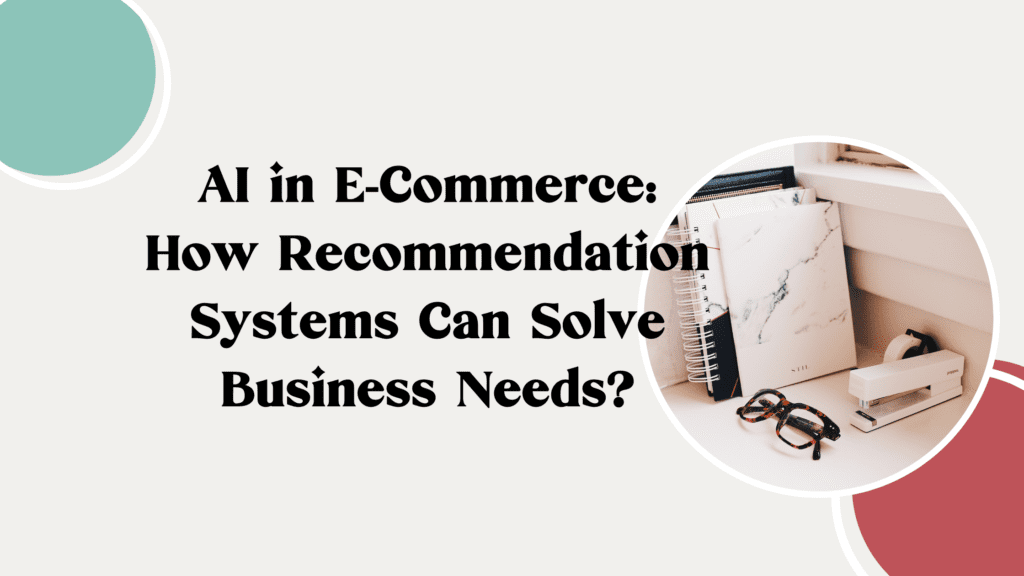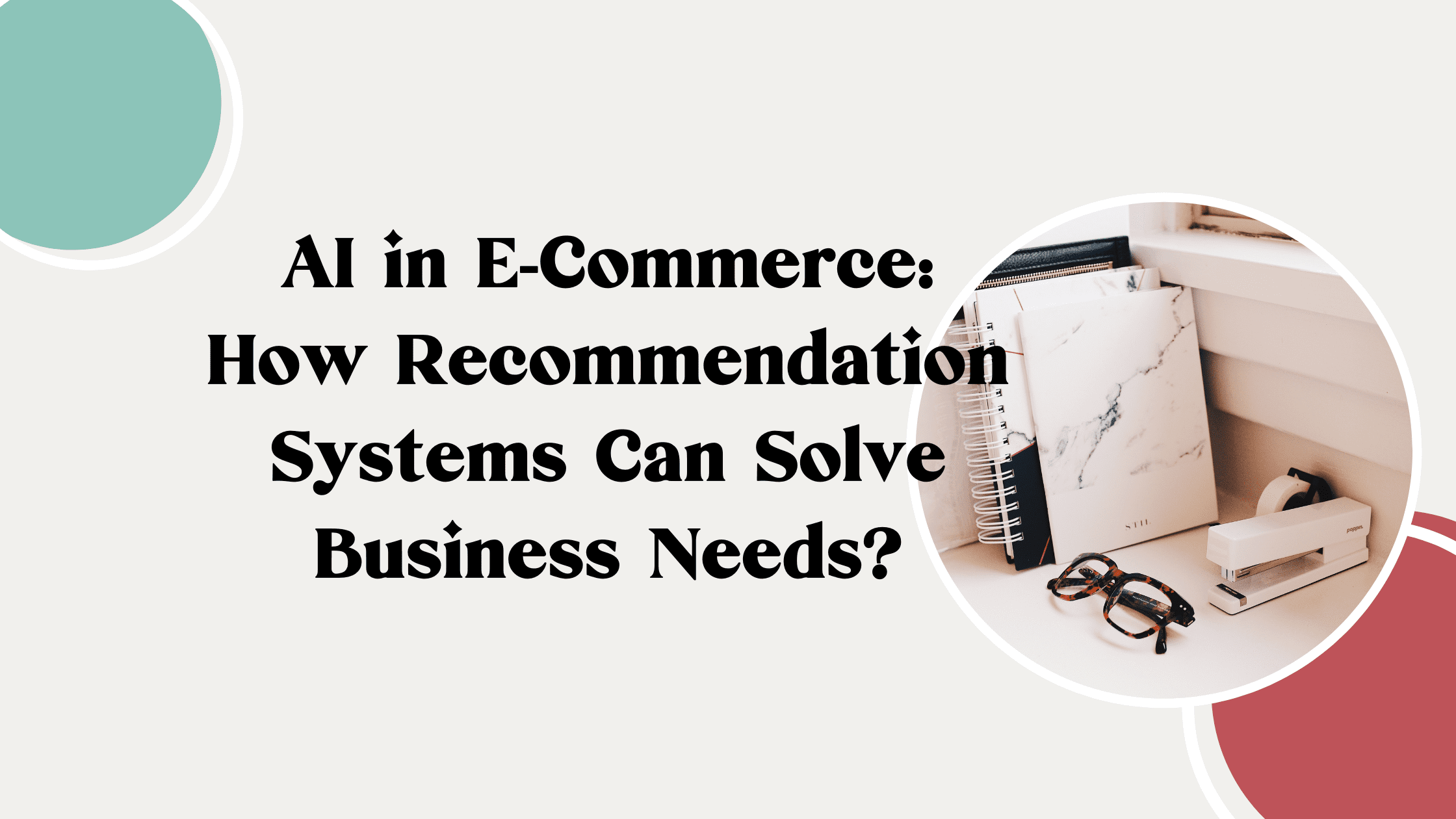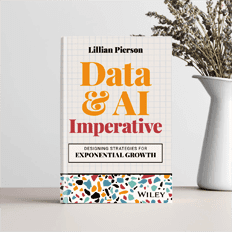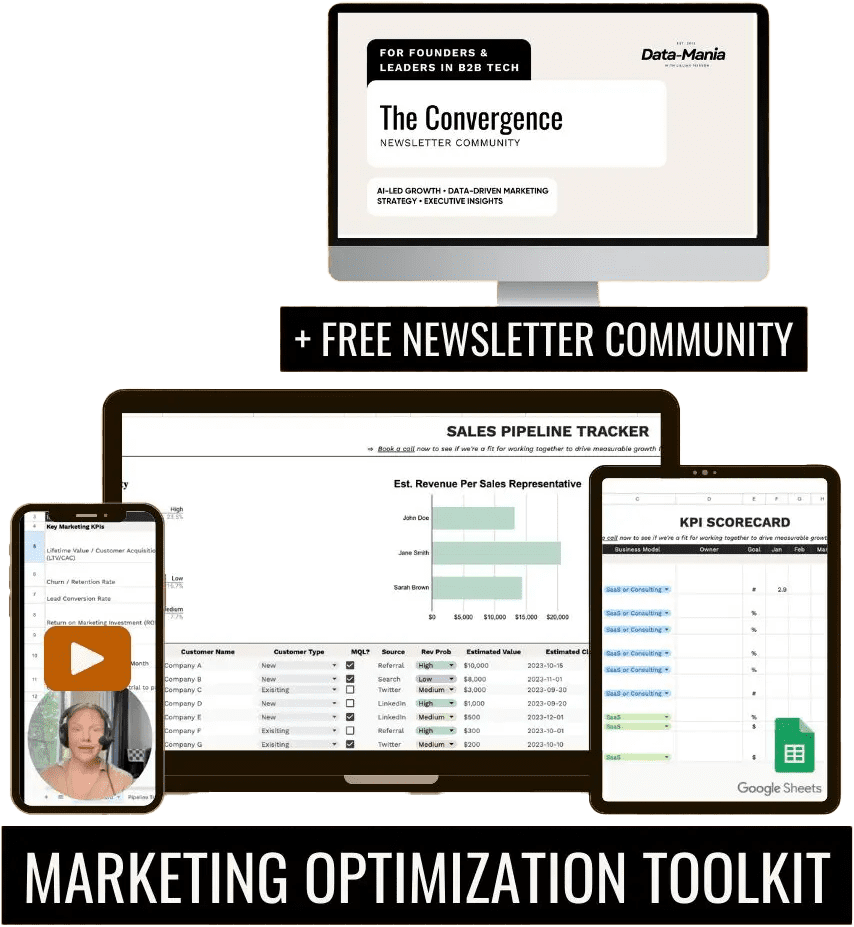Artificial Intelligence has become an inescapable part of the eCommerce industry in recent years. From automated customer service to product recommendations, AI technology transforms how businesses interact with customers and make purchase decisions. You will need to understand how AI is changing the eCommerce space, the advantages and disadvantages of its use, and the implications for the future of the industry. You will need a good understanding of artificial intelligence.

AI in E-Commerce
Artificial Intelligence or AI in eCommerce refers to the use of artificial intelligence technology to automate and optimize operations in the eCommerce industry. It helps develop more accurate customer profiles, provide personalized product recommendations, automate the checkout process, and detect fraud. Artificial Intelligence (AI) can also improve the customer experience by providing real-time feedback and support. AI in eCommerce is becoming increasingly important as companies strive to keep up with the changing demands of customers and technology.
Models for AI in e-commerce include recommendation systems, pricing algorithms, predictable customer segmentation, personalized product image searches, and AI chatbots. These models can apply as single solutions or in combination to solve different business needs. E-commerce companies are successfully using them for marketing and business objectives.
You will learn about recommendation systems implementations in the eCommerce industry in this article.
Recommendation Systems in eCommerce
Recommendation systems are an essential tool in the eCommerce industry. These allow businesses to leverage customer data to personalize their offerings and increase customer satisfaction. By understanding customer behavior and preferences, recommendation systems provide tailored recommendations to individual customers. This leads to more effective marketing, higher sales, and improved customer loyalty.
E-commerce recommendation systems have become increasingly popular in recent years due to data science and artificial intelligence advancements. These systems are designed to analyze customer data and suggest products or services that may be of interest to the customer. By utilizing data science and artificial intelligence, eCommerce businesses can gain data-driven insights into consumer behavior. This then allows them to meet their customers’ requirements better and increase sales.
Recommendation systems use data points such as previous purchases, browsing history, and reviews to suggest products that customers may be interested in. These systems can also recommend related items or services, such as accessories or services related to the items purchased. This can help increase customer satisfaction and build customer loyalty.
In addition, recommendation systems can help customize the online shopping experience by providing personalized recommendations based on individual preferences. This can help customers find the items they are looking for quickly and easily. Furthermore, recommendation systems can also help identify cross-sell and upsell opportunities.
Recommendation systems is a powerful tool for eCommerce businesses, allowing them to leverage data science and artificial intelligence to improve customer satisfaction and increase sales. By utilizing these systems, businesses can gain valuable insights into customer behavior and use that information to offer better products and services.
Recommender engines analyze users' prior buying behavior.
Recommender engines are a powerful tool. Many businesses use it to help increase sales and improve customer loyalty. By analyzing users’ prior buying behavior, recommender engines can make personalized recommendations tailored to a user’s individual preferences and interests. A variety of online retailers and streaming services, such as Amazon and Netflix, use this technology to deliver targeted product and content recommendations to users.
Recommender engines can deliver these targeted recommendations because they can analyze a user’s buying behavior. By analyzing a user’s past purchases, the system can make predictions of what a user is likely to buy in the future. This information can then be used to present the user with product and content recommendations that are likely to be of interest to them.
In addition to analyzing users’ buying behavior, recommender engines also use other information about the user, such as their geographical location, browsing history, and demographic information. By combining this data with their buying behavior, the system is able to create more accurate and personalized recommendations.
Recommender engines have become essential for businesses that want to increase sales and improve customer loyalty. By leveraging the data they have collected on users’ buying behavior and other information, businesses can present users with more relevant product and content recommendations, which leads to higher sales and increased customer loyalty.
Recommender engines predict new probable purchases of the users.
Recommender engines are powerful tools that can help businesses predict the future buying behavior of their customers. By leveraging large amounts of user data, these engines can identify patterns and trends in customer behavior and provide predictions about what customers may purchase in the future. This can help businesses maximize their revenue by targeting their marketing efforts to those customers who are likely to buy specific items.
Recommender engines use a variety of algorithms to analyze customer data, such as collaborative filtering and content-based filtering. Collaborative filtering uses past user data to make predictions about what a customer might purchase. For example, if a customer has previously purchased a certain type of product, the engine might recommend similar products. Content-based filtering uses the characteristics of a product to make recommendations. For example, if a customer has purchased a specific type of item, the engine might suggest similar items with similar features.
Recommender engines can be used to create personalized experiences for customers. By providing tailored recommendations, businesses can increase customer satisfaction and loyalty. This can result in higher conversion rates and increased revenue. Additionally, recommender engines can be used to identify new potential customers who may be interested in purchasing a particular product.
Recommender engines are a powerful tool for businesses to increase their sales and improve customer satisfaction. By leveraging customer data and algorithms, these engines can provide predictions about future customer purchases, allowing businesses to target their marketing efforts better and increase their revenue.
Recommender engines select or show the products or services users are most likely to purchase again.
Recommender engines are a powerful tool for predicting users’ future purchasing behavior. By analyzing a user’s past purchases and browsing history, recommender engines are able to select or show products or services that the user is most likely to purchase again.
Recommender engines are becoming increasingly popular as they are able to identify items that a user may not have even considered buying, thus helping to increase customer loyalty. They can also be used to personalize content to target customers with specific interests or needs.
Recommender engines use various algorithms to determine which products or services a user will most likely purchase again. This can include analyzing past purchases, browsing history, user ratings, and other forms of data. The algorithms are designed to identify patterns in the data and present suggestions that the user will likely find relevant and useful.
By using recommender engines, businesses can increase customer satisfaction and loyalty. Recommender engines can also be used to create tailored offers and discounts, which can be an excellent way to attract new customers and encourage repeat business.
Interested In Learning To Build Your Own Recommendation Systems For eCommerce?
If all this talk about recommendation systems has you eager to try your hand in building your own, then we have good news. The founder of Data-Mania, Lillian Pierson, has a course on LinkedIn Learning on Building Recommendation Systems with Python. It’s free for anyone who’s got a LinkedIn Premium Membership, and if you don’t – they only cost $29.99 per month.
Wrapping Up
In conclusion, AI-based recommendation systems have become integral to e-commerce, providing businesses with valuable insights into their customer’s preferences and behavior. They are extremely effective at helping businesses identify the products and services their customers are most likely to purchase, and the personalized recommendations they provide enable customers to find the items they want to buy quickly and easily. By leveraging the power of AI in e-commerce, businesses can increase their profits and improve customer satisfaction. You can also apply these technologies to real-world practices through artificial intelligence applications.





